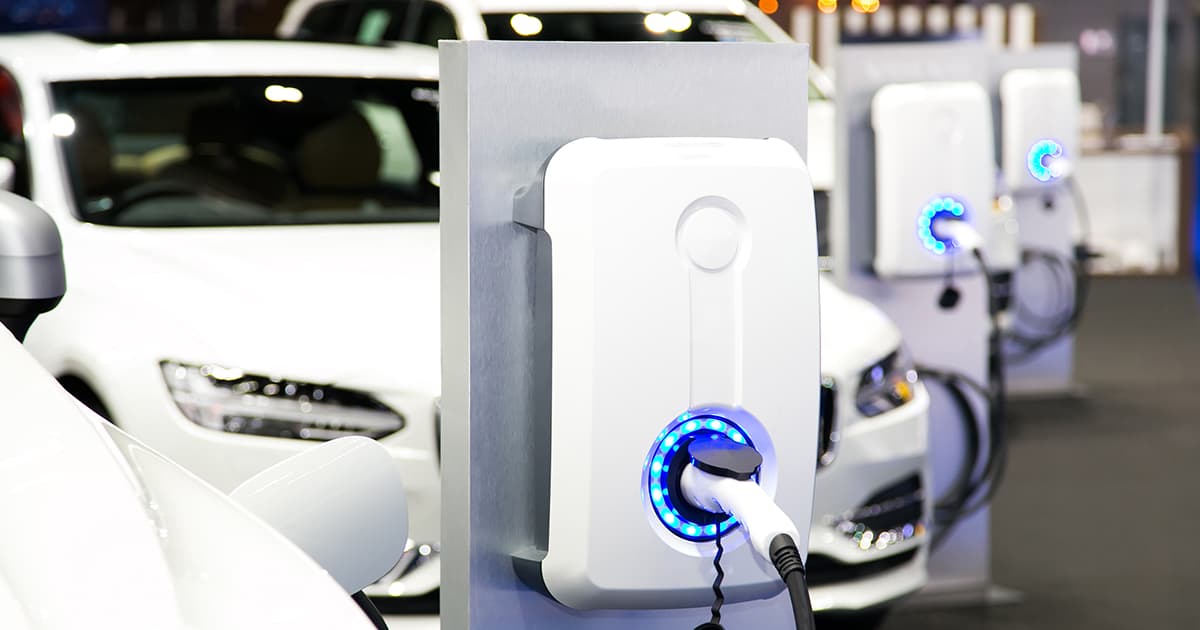How to Decide Whether to Buy an Electric Vehicle

Like any significant decision, buying an electric vehicle (EV) comes with its own set of advantages and disadvantages. Do your research to understand the pros and cons of buying an EV.
Pros of Buying an Electric Vehicle
Environmental benefits: One of the most compelling reasons to choose an EV is its reduced environmental impact.
Electric vehicles produce zero tailpipe emissions, significantly reducing air pollution compared to their gasoline counterparts.
Western Financial Group has a partnership with Rivian, a maker of electric trucks and electric sport utility vehicles (SUV). Rivian and Western have come together to offer a streamlined insurance process for your Rivian vehicle's registration, insurance, and delivery.
Lower operating costs: EVs are generally cheaper to operate than gasoline-powered vehicles. Electricity costs less than gasoline on a per-mile basis, which means you can save money on fuel over the life of the vehicle. Electric vehicles also have fewer moving parts, leading to potentially lower maintenance costs.
Tax incentives and rebates: Governments can offer tax incentives, rebates, and other benefits to encourage the purchase of electric vehicles. These financial incentives can significantly reduce the upfront cost of an EV, making it a more attractive option for buyers.
Performance benefits: Electric vehicles are known for their quick acceleration and smooth driving experience, thanks to the instant torque delivered by electric motors. This can make driving an EV more enjoyable compared to traditional vehicles.
Energy Independence: By switching to electric vehicles, countries can reduce their dependence on imported oil, enhancing energy security and stability. It also allows consumers to potentially power their vehicles with renewable energy, further reducing their carbon footprint.
Cons of Buying an Electric Vehicle
Higher initial purchase price: Despite the long-term savings on fuel and maintenance, EVs typically have a higher upfront cost compared to gasoline vehicles. This can be a barrier for some consumers, although prices are expected to decrease as technology advances and production scales up.
Limited range and charging infrastructure: While EV technology has advanced significantly, range anxiety remains a concern for potential buyers. Although newer models offer ranges that are comparable to gasoline vehicles, finding a charging station can still be a challenge in certain areas, especially for long-distance travel.
Battery replacement costs: The battery is one of the most expensive components of an electric vehicle, and its performance can degrade over time. The cost of battery replacement can be substantial, although advancements in battery technology are increasing lifespan and reducing costs. On average, an EV battery replacement can cost between $5,000 and $15,000, depending on the vehicle model and battery capacity.
Insurance costs: Insurance costs for electric vehicles can be higher than those for traditional vehicles, primarily due to the higher value of EVs and the cost of repairing or replacing their advanced technology. However, as electric vehicles become more common and repair networks expand, insurance premiums may become more competitive.
Charging Time: Charging an electric vehicle can take significantly longer than refueling a gasoline vehicle, ranging from 30 minutes for a rapid charge to several hours for a full charge using a standard home charger. This requires planning and can be inconvenient for those without access to home charging facilities.
By carefully evaluating the pros and cons, you can make an informed decision about buying an electric vehicle.
Ask your Western Financial Group car insurance expert about insuring your EV.
Did you know? Switching your car and home insurance to Western is easy and you can save up to 30%.



